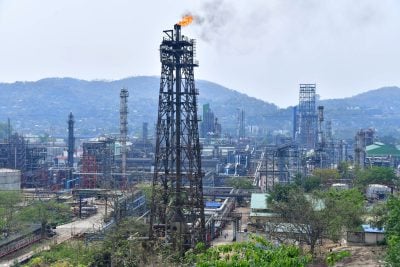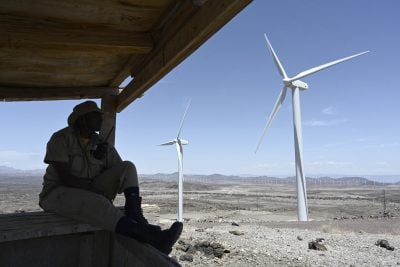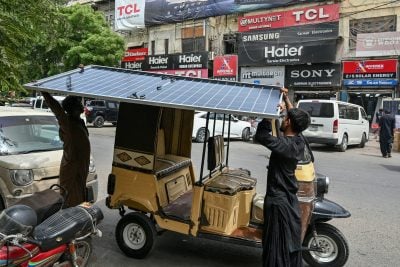After a contentious election period in the DRC, the country’s electoral commission announced in January that Félix Tshisekedi had emerged victorious in the presidential elections.
Amid allegations of a backdoor deal between Tshisekedi and the former president, Joseph Kabila, opposition candidate Martin Fayulu contested the results with backing from the French government and the powerful DRC Catholic Church, but his challenge was rejected by the Constitutional Court.
Despite suspicions of Kabila’s ongoing influence, the fact that the president’s favoured candidate, Emmanuel Shadary, lost so convincingly signals change is afoot in the DRC.
Shortly before his departure Kabila signed into law a controversial mining code that hiked duties on mining firms – especially “strategic minerals” such as cobalt. With Tshisekedi now in charge, many are left wondering what effect his presidency will have on the country’s most important sector.
Tshisekedi effect
Despite being the son of DRC’s former opposition leader Étienne Tshisekedi, Felix Tshisekedi is a relatively unknown quantity for investors. After spending his childhood in Belgium, Tshisekedi worked in various positions in his father’s Union for Democracy and Social Progress party before being elected leader in March 2018, some two months after his father’s death.
On the campaign trail, Tshisekedi argued that the resource nationalism associated with the new mining code had gone too far, calling it “anti-investment”. This was music to the ears of the mining executives who had been vehemently opposing Kabila’s hikes for much of 2018. However, the chances of the code being repealed or amended under the new administration are very limited.
Many have argued that the miners were riding on a golden ticket since the original 2002 mining code – introduced in the wake of the Second Congo War – which offered low taxation levels in exchange for investment in the sector.
“A revision of that code was always in the works,” says Amir Shafaie, legal and economic programs director at the Natural Resource Governance Institute. “On the fiscal side it was quite generous to mining companies.”
Kabila’s new bill, therefore, was seen by many Congolese as an important assertion of the DRC’s sovereignty. Any back-pedalling by Tshisekedi could significantly damage the new president’s struggle to consolidate his legitimacy.
Receipts from the mining sector, which accounts for approximately 20% of GDP, are also extremely important for funding the Kinshasa government. With government income constrained by the continued unrest across the country, especially in the restive Kasai and Kivu provinces, mining is a crucial source of revenue.
“The government is going to struggle to collect income and business taxes, so we don’t think they will be in a position to start cutting the tax increase on miners,” comments Michael Jones, sub-Saharan Africa risk analyst for Fitch Solutions.
Tshisekedi’s ability to repeal the increase is equally severely constrained by the results of the legislative elections that took place on the same day as the presidential contest.
Although Kabila’s Common Front for Congo (FCC) party lost the presidency, it did manage to secure a strong majority in the National Assembly. As the National Assembly must ratify the president’s choice of prime minister, the next head of government should be a member of the FCC, and this post will wield substantial power during a political cohabitation.
Power therefore rests in Kabila’s hands, which will severely limit Tshisekedi’s ability to push radical change through parliament, should he wish to do so.
Increasing demand
Irrespective of the executive, the DRC’s economy is set to grow this year, buoyed in large part by mining sector growth. Fitch Solutions predicts a 4.5% growth in GDP, up from 2.5% the year before. Many mining companies opted to invest in boosting the capacity of their mines while the market retracted under the weight of the global commodity slump, says Jones, which has led to increased output.
“When they reopened in 2016 to 2017, mines like Glencore’s Katanga mine ended up with massively increased capacity,” he adds. “I think it’s now the largest cobalt mine in the world, it certainly will be when it hits peak production.”
Across the country, cobalt production is estimated to rise by 25% and copper by 15%. This in turn will boost exports by just enough to keep the currency stable, bringing down inflation, which has dropped remarkably over the last year, and ensuring continuing consumption.
With mines ramping up output, and the DRC holding a large share of the world’s non-precious metals, mining activity and investor confidence are unlikely to be swayed by the tax hikes. After all, according to Fitch Solutions, the DRC exported over 80% of the world’s cobalt in 2017 – a metal which is a crucial component of lithium ion long-life batteries.
“There is no meaningful competitor, certainly not in the short term, so we think mining companies are going to have no choice but to do business in the DRC if they want to continue,” argues Jones.
What may concern investors, however, is a clause in the mining code under which the government can at any point designate a mineral as “strategic” and simultaneously ramp up its royalty rates. Cobalt is currently the only mineral designated for such a levy, but this could extend to other minerals in the future.
On the other hand, the government is permitted to grant bilateral tax exemptions to miners who are working in underdeveloped areas. Mining companies therefore have the ability to broker individual tax rates on a potentially ad hoc basis, which undermines the code itself.
Output in the DRC is routinely under threat from security issues, and this year is no exception. The disputed election could lead to further unrest, which will impact negatively on operations across the country. Ebola outbreaks in North Kivu province could also impact local operations and beyond if not contained successfully.
Nevertheless, security threats are part and parcel of doing business in the DRC and miners are likely to have made the necessary allowances. “The instability in the DRC is probably one of the most stable things about the DRC,” as one analyst puts it.
Want to continue reading? Subscribe today.
You've read all your free articles for this month! Subscribe now to enjoy full access to our content.
Digital Monthly
£8.00 / month
Receive full unlimited access to our articles, opinions, podcasts and more.
Digital Yearly
£70.00 / year
Our best value offer - save £26 and gain access to all of our digital content for an entire year!
 Sign in with Google
Sign in with Google 



